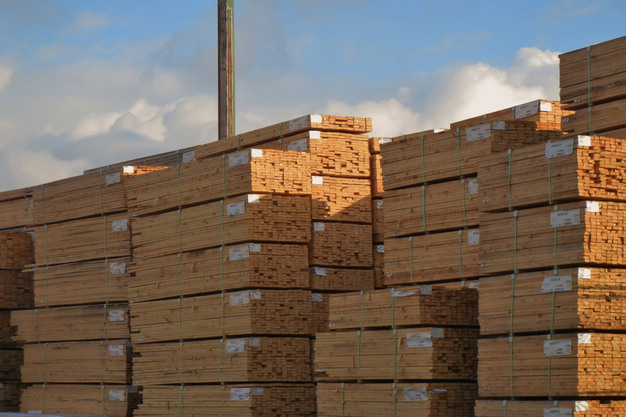The current economic development and future challenges were the focus of a survey of more than 100 member companies, presented at a press conference by the German Sawmill and Wood Industry Association (DeSH).
The results highlight significant challenges facing the industry. The weak economy and the crisis in housing construction are placing companies under considerable pressure. At the same time, the introduction of the EU Deforestation Regulation (EUDR) threatens to disrupt wood markets and weaken the domestic industry. The DeSH is urging politicians to act swiftly.
 Photo: Dreamstime.
Photo: Dreamstime.
'The results of our association survey not only provide insights into the current situation of the sawmill and wood industry, but also underline the appeals that have been coming from the entire economy for months: without decisive political action, there will be no quick recovery,' emphasizes DeSH President Dr. Stephan Lang. 'The crisis in the construction sector, in particular, is becoming increasingly acute. With the sawmill and wood industry, we are not only under pressure on a central component of the forest and wood value chain but also on a future industry for sustainable and climate-friendly construction and living. In light of this alarming development, the political measures taken so far seem like a drop in the ocean.'
Construction crisis causes lack of orders
Of the 105 companies surveyed, around three-quarters identify the construction industry as their biggest economic challenge. 'The declining construction activity has gripped the industry for months. Forty percent of companies are already reporting a poor business situation, with no improvement in sight,' Lang commented on the survey results. 'With peak prices for raw materials and personnel, companies face an extremely difficult market environment by international comparison.'
Economic disruption caused by EUDR
Compounding these issues is a growing bureaucratic burden. The introduction of the EUDR at the end of the year poses significant economic challenges. Ninety-four percent of companies do not believe they can implement the regulation within the specified deadline under current conditions. 'The survey clearly indicates what we as an association have been communicating for months: the EUDR in its current form is neither feasible nor practical. It threatens to lead to distortions in the wood markets and permanently weaken the domestic industry,' explains DeSH Managing Director Julia Möbus. Many companies also express concerns about competitive disadvantages in international trade and compared to other materials.
Quick action required
'Wood is a raw material of the future, and the industry connecting forests and timber construction is central to the sustainable development of the economy and society. Instead of additional bureaucratization, we need reliable framework conditions and the removal of existing obstacles to the use of wood,' Lang states. 'In view of the current economic situation and the housing construction crisis, we call on politicians to act quickly. The climate-friendly transformation will not succeed by waiting and hoping for improvement,' Lang concludes
More information:
HDH
www.holzindustrie.de
